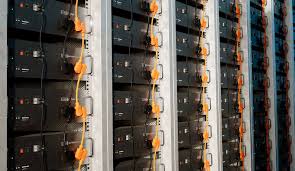
This facility will be the company’s second commercial-scale lithium-ion battery recycling facility and will process approximately 100,000 tonnes/year of battery materials from its automotive OEM, cell manufacturer, and community partners.
This facility will intake a wide variety of end-of-life and manufacturing scrap materials, and will output battery grade nickel, cobalt, manganese, and lithium hydroxide products to be sold to the North American market. ABTC entered into a strategic partnership agreement with BASF in Summer 2023, one of the premier cathode manufacturers in North America, for the purchase of its battery grade metals.
This second facility is designed to scale fivefold the company’s first recycling facility and will implement its internally-developed processes for the strategic de-manufacturing and targeted chemical extraction of battery grade products at competitive costs and with low environmental footprint.
These processes have already been demonstrated to produce battery grade products that meet the rigorous specifications set by cathode refining customers and are fundamentally different than conventional methods of battery recycling, which generally utilize either high temperature smelting or non-strategic shredding systems.
The company has leveraged its in-house ABTC R&D, project management, and engineering team members, many of whom were previously members of the founding Tesla Gigafactory design and engineering teams, to scale and de-risk ABTC’s commercialization of this second battery recycling facility.
True to the company’s strategic model to engage a diverse portfolio of partners and stakeholders to bring advanced battery technologies online and establish a commercial battery metals supply chain for North America, this project will leverage multiple partners including feedstock supplier and critical mineral product offtaker BASF, global engineering firm Siemens, the Clemson University International Center for Automotive Research (CU-ICAR), the Argonne National Laboratory (ANL) ReCell Center, the Argonne National Laboratory Sustainable Transportation Education & Partnerships (STEP) department, and the South Carolina Electric Transportation Network (SCETNetwork).
The contracted grant award will commence on 1 January 2025.